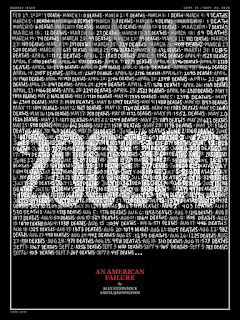COVID-19
Clinical Practice
‘Better Than the Hospital’: Pandemic Boosts Care for Serious Illnesses at Home (KHN) Hospital care at home is nothing new for patients with low-level health needs. But since the pandemic began, a growing number of health systems, including Adventist Health, the Mayo Clinic and Kaiser Permanente (which is not affiliated with KHN) are offering people with more serious health conditions hospital-level treatment in the comfort of their homes.
Public & Global Health
Refugee Access to COVID-19 Vaccines in Lebanon (The Lancet) Lebanon is currently experiencing multiple unprecedented crises—political, infrastructural, and economic. The Beirut port explosion, in August, 2020, damaged 36% of health facilities.1 The Lebanese pound has lost 90% of its value, pushing more than half of the population into poverty.1 Complicating its desperate plight, Lebanon hosts the largest refugee population per capita in the world.2 The COVID-19 pandemic has exacerbated this situation, leaving an ill-equipped health-care system overwhelmed.1 Given that the country struggles to care for its own citizens, the individuals who are most vulnerable, such as refugees, are at a heightened risk, particularly given the historical neglect of refugee populations in Lebanon's routine vaccination efforts.3 Amid Lebanon's crises, the risk of failing to ensure equitable access to the COVID-19 vaccine for its 1·7 million refugees represents an impending public health crisis.
Faster Than a PCR Test: Dogs Detect Covid in Under a Second (The Guardian) Faster than PCR and more accurate than lateral flow tests, the latest weapons against Covid-19 have four legs and a wet nose. A study published on Monday found that people who are infected with coronavirus give off a distinct odour, which these highly trained dogs can detect with pinpoint precision.
Science & Technology
C.D.C. Will Not Investigate Mild Infections in Vaccinated Americans (New York Times) No vaccine provides perfect protection, and so-called breakthrough infections after coronavirus vaccination are rare and unlikely to lead to serious illness. Federal health officials have told fully vaccinated people they no longer need to wear masks or maintain social distance because they are protected, nor do they need to be tested or quarantine after an exposure, unless they develop symptoms. Now, the Centers for Disease Control and Prevention has stopped investigating breakthrough infections among fully vaccinated people unless they become so sick that they are hospitalized or die.
Science & Technology
Russia-linked PR Firm Attacks Pfizer Vaccine in Europe (EUObserver) A Russia-linked PR firm called Fazze offered to pay social-media influencers in France and Italy to tell followers the Pfizer/BioNTech vaccine had caused mass deaths unreported by mainstream media, The Guardian reports. Léo Grasset, a French blogger with 1.2 million followers, said the campaign had a "colossal budget". Influencers were meant to post links to 'leaked data' on deaths, even though no such leaked data existed.
A Patent Waiver on COVID Vaccines Is Right and Fair (Nature) Every country should have the right to make its own vaccines during a pandemic. That’s the principle underpinning the campaign to temporarily waive intellectual property (IP) protection on coronavirus vaccines. The campaign was initiated by India and South Africa, and is being backed by more than 100 countries, along with international organizations including the World Health Organization and the United Nations AIDS charity, UNAIDS. The goal is to reduce the barriers to countries producing their own vaccines — particularly for the lowest-income nations.
CEPI Funds Expansion of “Mix and Match” Vaccine Study, Led by Oxford University (CEPI) The Coalition for Epidemic Preparedness Innovations (CEPI) today announced that it will fund the expansion of the University of Oxford’s study to assess the use of mixed COVID-19 vaccine regimens, specifically to include the Moderna and Novavax vaccines, which are among the vaccines to be distributed through COVAX—the global mechanism for equitable access to COVID-19 vaccines.
Biological Agents & Infectious Diseases
Guinea: Ebola and Lassa Fever Updates (Outbreak News Today) The declaration to the end of the Ebola Virus Disease (EVD) outbreak is around the corner–scheduled for June 19. To date, a total of 23 cases have been reported, including 16 confirmed cases, and 7 probable cases, of which 9 have recovered, and 12 have died (case fatality ratio 52.2%).
Moderna Vaccine Highly Effective in Adolescents, Company Says (New York Times) Moderna said on Tuesday that its coronavirus vaccine, authorized only for use in adults, was powerfully effective in 12- to 17-year-olds. In a clinical trial of the vaccine in adolescents, there were no cases of symptomatic Covid-19 among fully vaccinated teens, the company reported in a news release.
Government Affairs & National Security
White House Encourages COVID-19 Vaccine Incentives (CIDRAP) Today Andy Slavitt, the White House senior advisor for COVID-19 response, said during a White House press briefing on the pandemic that he was inspired by Ohio's "Vax-A-Million" lottery, which will award $1 million to a person each week for 5 weeks, with winners drawn at random with proof of vaccination.
COVID-19 Vaccine Acceptance Rises But Needs Boost (CIDRAP) Two new studies reveal that although COVID-19 vaccine hesitancy has declined in the United States, 35.2% of adults 18 to 39 years and 8.7% of those 65 and older still said they would not partake as of March 2021 and November 2020, respectively.
Science & Technology
A New Tool Tracks Health Disparities in the U.S. — and Highlights Major Data Gaps (STAT) Over and over, the pandemic has reinforced the reality of racial disparities in the U.S. health system. But that story remains difficult to see in the data, which is still inconsistently collected and reported across the country. On Wednesday, a coalition of researchers and advocates launched a tool they hope will fill some of those gaps: the Health Equity Tracker, a portal that collects, analyzes, and makes visible data on some of the inequities entrenched in U.S. medicine.
|
|



Comments
Post a Comment